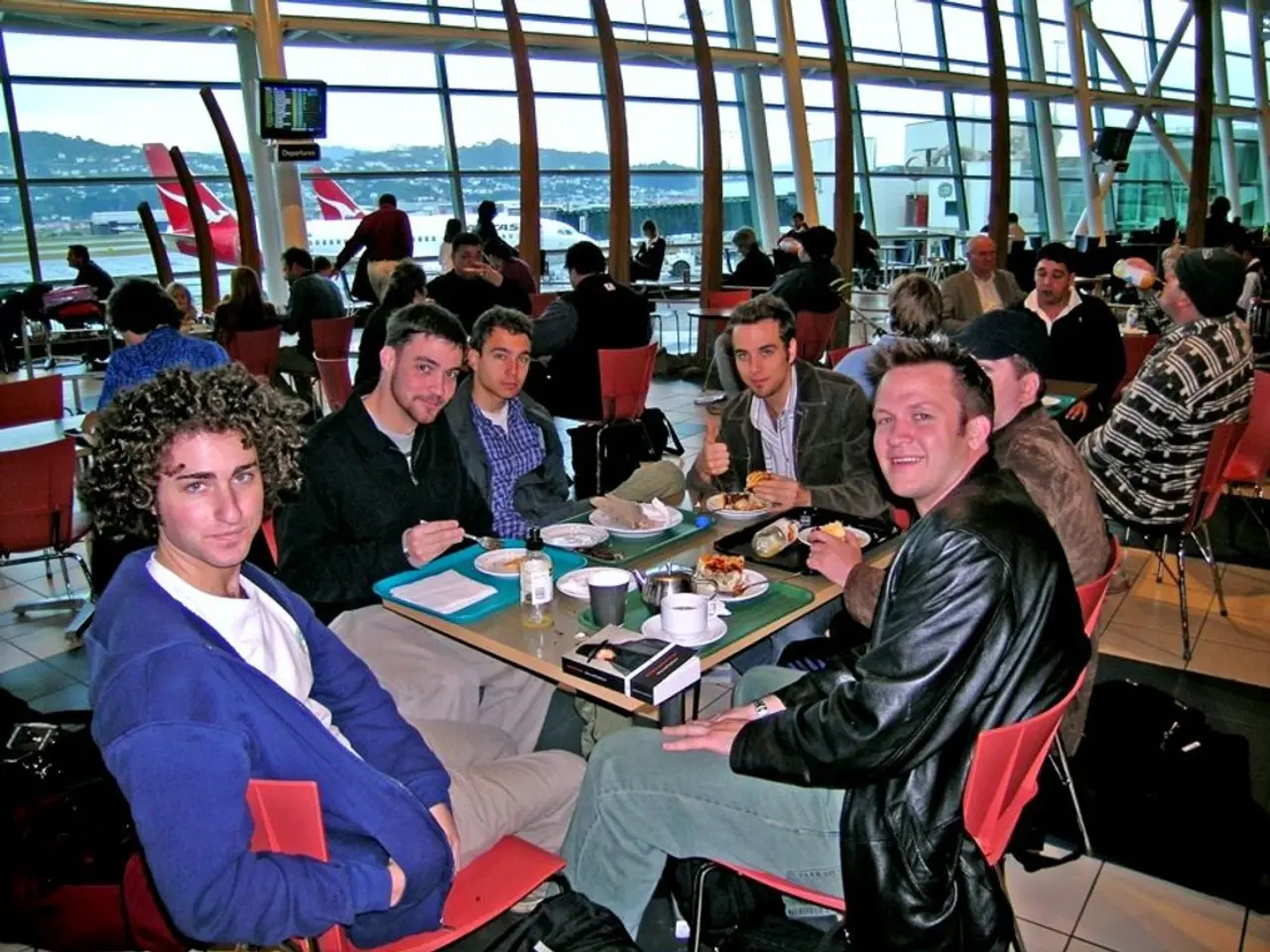Multiple German airports allow the return of liquids during security checks
New 3D Scanning Technology Streamlines Airport Security in Europe
Airport security in Europe is undergoing a significant transformation, thanks to the introduction of new scanning technology. This innovation, currently in use or being installed at airports in Germany (Frankfurt am Main, Munich, and Berlin's BER), is set to simplify security checks for travelers and speed up the process at security checkpoints.
The European Union has paved the way for this change by approving the use of carry-on baggage scanners after a software update. This update allows the scanners to safely examine larger amounts of liquids and distinguish them from potential explosives.
At Frankfurt Airport, departure areas A and Z, primarily used by Lufthansa, are fully equipped with this new technology. In fact, there are currently 40 CT scanners in use at the approximately 160 security lanes in Frankfurt, according to Fraport's security chief, Dennis Wildhirt. The new full-body scanners do not require passengers to stop, providing hundreds of luggage scans without slowing down. They offer 3D views and layer-by-layer content inspection on the control screen.
Frankfurt Airport allows bottles containing up to two liters of liquids at certain security lanes from mid-September, contingent upon the installation of CT technology scanners. This change has led to no longer any longer waiting times at passenger controls during the summer travel season, according to Wildhirt.
Munich Airport is also conducting tests to allow bottles containing up to two liters, with 20 scanners with CT technology in use, including the entire Terminal 2. At Berlin's BER airport, all new devices are currently being equipped with the required software, making the security check more comfortable. As of now, 24 of the 30 scanners at Berlin's BER airport have already been equipped with the required software.
The newest CT scanner technology is also being implemented at the new Terminal 3 at Frankfurt Airport, scheduled to open in spring 2026. Three German airports (Frankfort, Munich, and Berlin's BER) are currently using or installing these devices.
It's important to note that not every security lane at these airports has the new technology. Passengers may not be aware of which security lane to enter, as only a portion of the entrances to the security area have the new technology.
The international liquid restrictions in aviation, introduced in 2006 after it was revealed that terrorists could potentially make explosives on board an aircraft using multiple liquids, are slowly being eased with the introduction of these new scanners.
This development is a significant step towards enhancing security while making the airport experience more convenient for travelers.
Read also:
- Jaroslav Rudiš is organizing the Wiesbaden Literature Festival in 2025
- Top 5 ASX-Listed Graphite Companies Projected for 2025
- Affordable, Comprehensive Energy Storage Solution for Small-Scale Power Plants: The Marstek Jupiter C Plus, Priced Under 220 € per Kilowatt-Hour, Offers a 100 € Discount per Set.
- Sunscreen: Its Capabilities and Limitations - Unveiling the Facts About Its Protection and Inefficiencies








